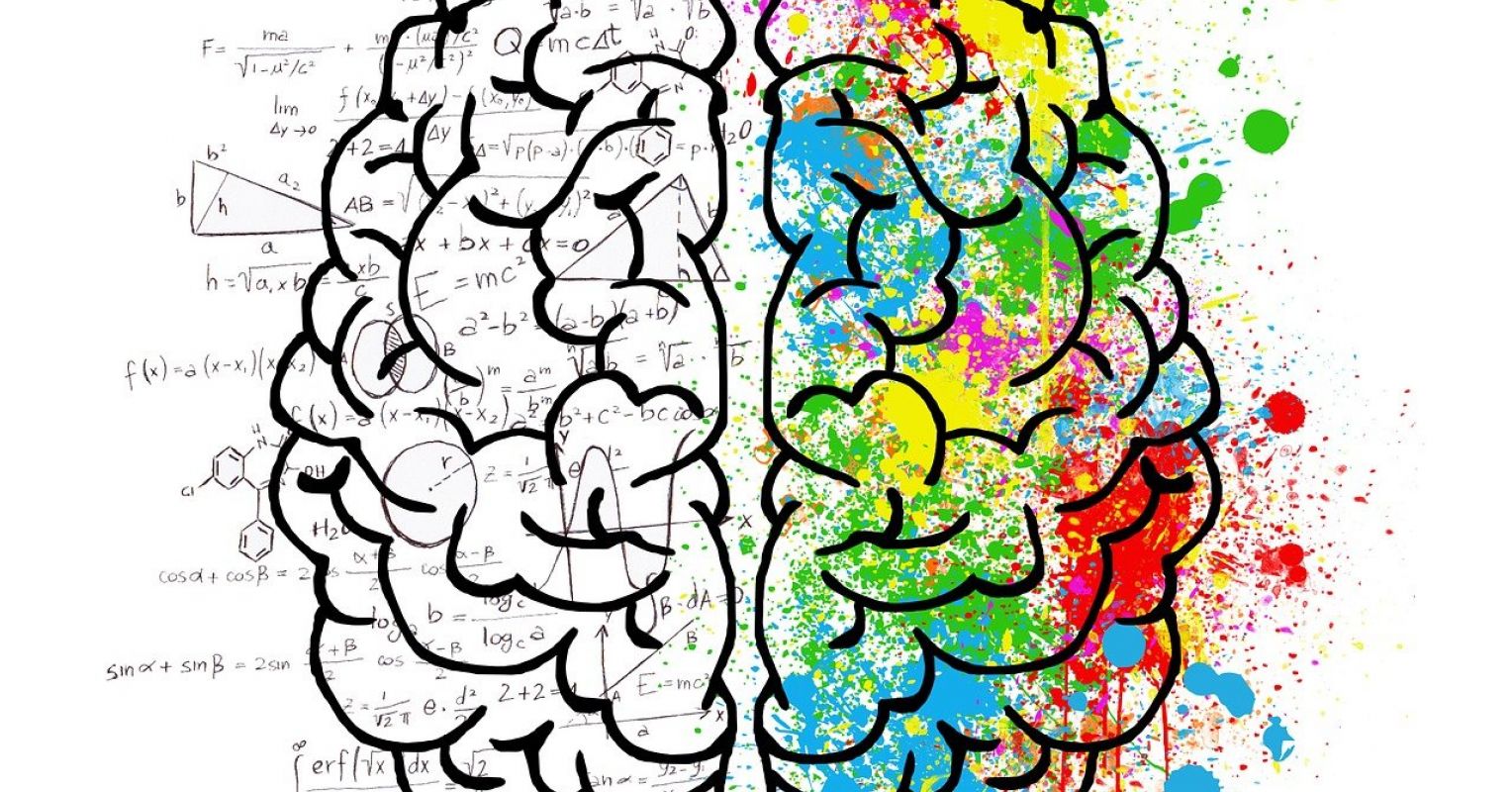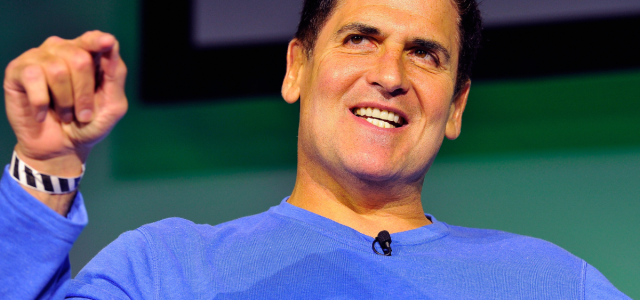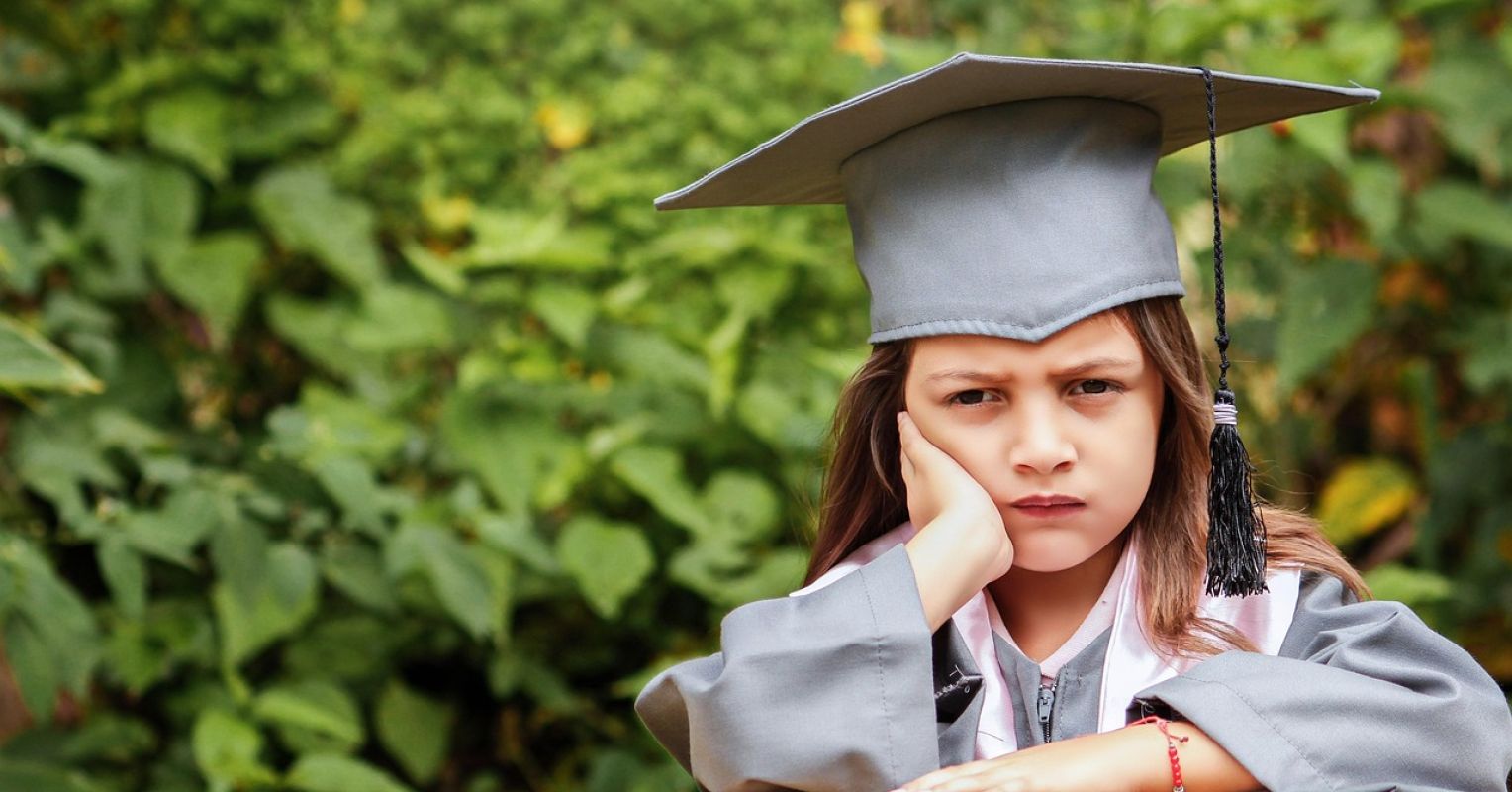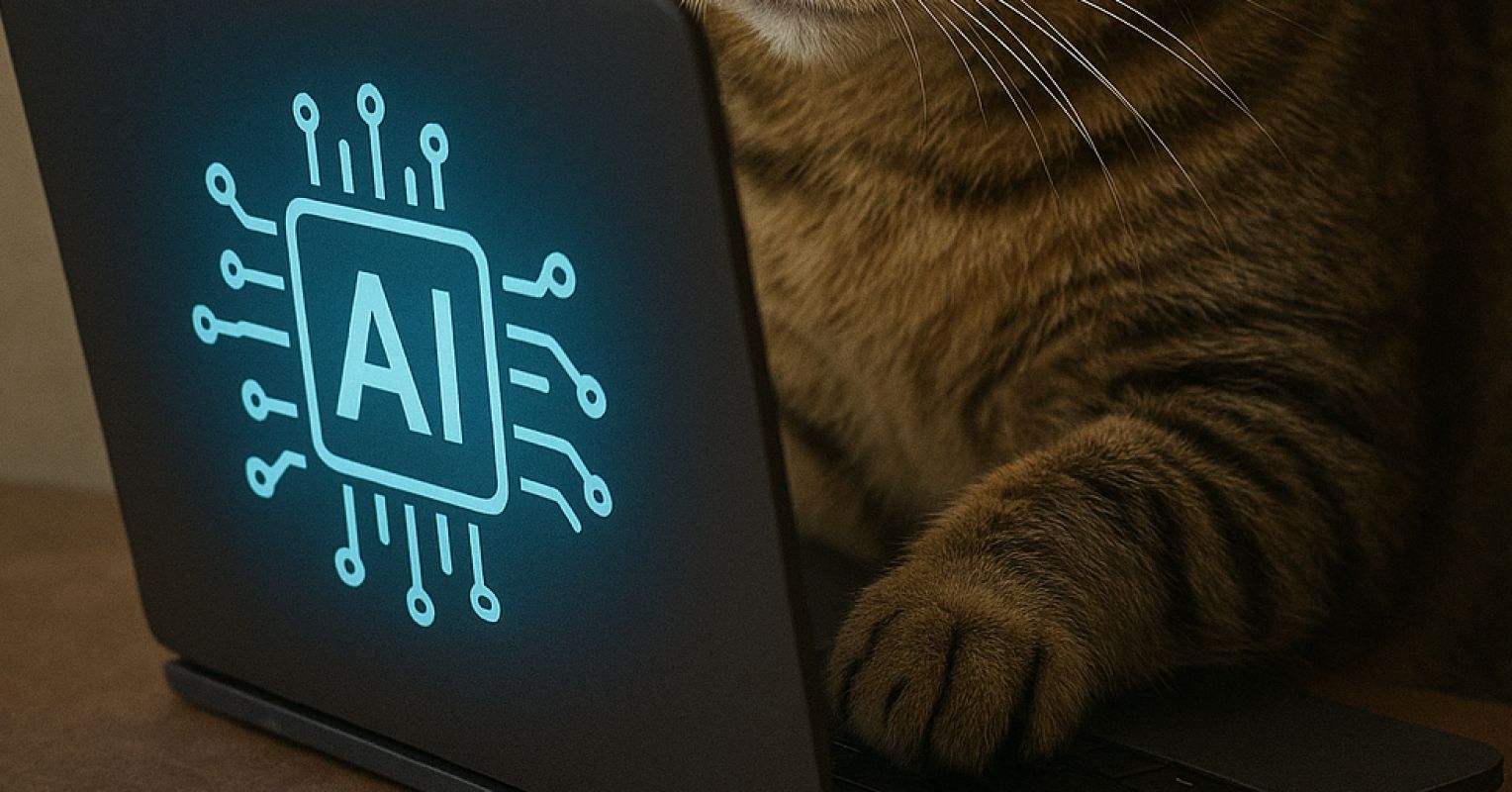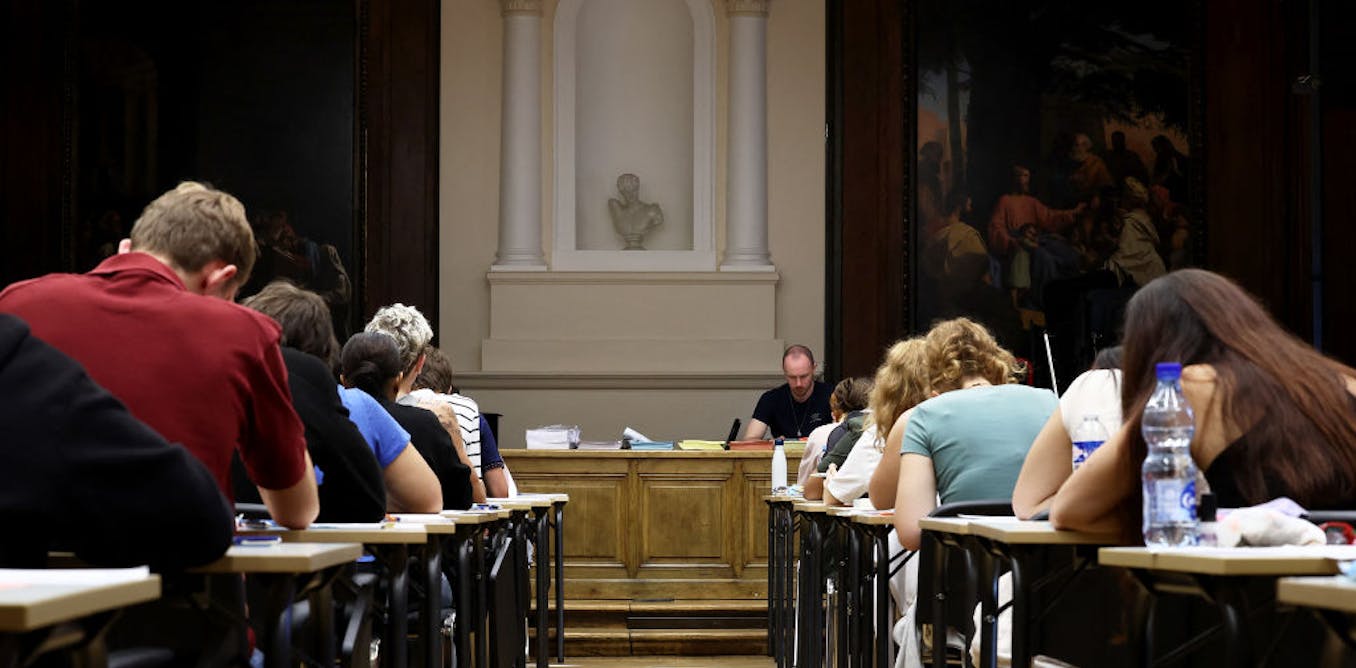#critical-thinking
#critical-thinking
[ follow ]
#education #generative-ai #higher-education #ai-in-education #misinformation #academic-integrity #ai
fromFast Company
4 days agoAre you outsourcing your intelligence to AI?
In fact, I didn't even think to ask ChatGPT what might work in my favor if I just stayed the course.I was a "LLeMming": a term Lila Shroff uses to describe compulsive AI users in The Atlantic. Lila Shroff shares that just as the adoption of writing reduced our memory and calculators devalued basic arithmetic skills, AI could be atrophying our critical thinking skills.
Psychology
fromBig Think
6 days agoCarl Sagan's 9 timeless lessons for detecting baloney
Making good decisions doesn't merely rely on how much information we take in; it also depends on the quality of that information. If what we've instead ingested and accepted is misinformation or disinformation - incorrect information that doesn't align with factual reality - then we not only become susceptible to grift and fraud ourselves, but we risk having our minds captured by charismatic charlatans. When that occurs, we can lose everything: money, trust, relationships, and even our mental independence.
Philosophy
fromSilicon Canals
1 week agoYou know someone lacks intellectual depth when these 8 habits dominate their communication style - Silicon Canals
I've interviewed over 200 people for articles, from startup founders to burned-out middle managers, and I've discovered something fascinating: intellectual depth isn't about fancy degrees or knowing obscure facts. It shows up in how we communicate. When certain habits dominate someone's style, it reveals a concerning lack of curiosity and critical thinking that goes beyond just being annoying-it fundamentally limits their ability to engage with the world meaningfully.
Philosophy
fromSilicon Canals
1 week agoIf you're easily bored by surface-level discussions, you probably have these 8 traits of advanced thinkers - Silicon Canals
You're not alone. And you're definitely not rude. Some of us are simply wired differently. We crave depth, substance, and meaning in our interactions. Small talk feels like eating cotton candy when you're hungry for a real meal. Growing up, my family dinners were never just about passing the salt. They turned into passionate debates about ideas, politics, and the meaning of life.
Philosophy
fromThe Atlantic
4 weeks agoHow to Not Think Like a Bot
The most exciting moments for a teacher come when students stumble onto something unexpected-when they run to my office to tell me about a new twist in their thinking about birds in Sula or the discovery of yet another biblical reflection in Housekeeping. Those revelations come only when they survey the text as it is, not as they assume it to be.
Education
fromPsychology Today
1 month agoQuestion Everything
On December 25, 1914, British and German soldiers stopped fighting and met in the middle of "no man's land" to socialize, exchange gifts, and play soccer. In what has become known as theChristmas Truce of World War I, the men, for a moment, returned to being normal people. Perhaps the holiday made them nostalgic for their families and the joy of the season. From inside the cold, wet, snow-filled trenches, one side started singing Christmas carols, and then the other side joined in.
World politics
fromBuzzFeed
2 months ago28 Toys That Are Sure To Bring A Grin To Your Little One's Face
1. A gravity-based marble run game to enhance critical thinking and have your child constantly challenging themselves by undertaking harder and harder levels. Great for developing logical reasoning, spatial reasoning, and planning skills, this game will have the whole family joining in on the fun and working together to get through all 60 challenges. Promising review: "Bought it for my 6-year-old nephew, and he loved it! The game is set up so that my nephew could figure it out intuitively with minimal guidance. It introduces children to fundamental concepts of physics and problem-solving mechanics in a very natural way." - Seoung Kim Get it from Amazon for $24.72.
Miscellaneous
fromeLearning Industry
2 months agoeLearning Industry's Guest Author Article Showcase [November 2025]
From nurturing curiosity to harnessing cognitive science principles and designing learning for co-intelligence, November's Guest Author Article Showcase spotlights some excellent pieces on human-AI convergence. What happens when humans focus solely on technology when designing learning with Artificial Intelligence? Why do we need to teach and cultivate critical thinking? Can AI tools amplify our humanity? In no particular order, here are last month's top guest author articles on this hot topic.
Education
fromPsychology Today
3 months agoNot Even Wrong
Physicist Wolfgang Pauli dismissed a muddled theory with this single, scathing line: "That is not only not right; it is not even wrong." It sounds pedantic, but Pauli's point is an important one. Some claims are wrong not because they contradict evidence, but because they can't be tested at all. And that distinction is just as relevant when debating on social media today as it was when applied in the field of 20th-century physics.
Philosophy
fromInside Higher Ed | Higher Education News, Events and Jobs
3 months agoWould We Rather Humanities "Be Ruined Than Changed"? (opinion
Our Greek forebears, as early as Hippocrates, coined the term "kρίσις" to describe a "turning point"; kρίσις, a word related to the Proto-Indo-European root krei-, is etymologically connected to practices like "sieving," "discriminating" and "judging." In fact, the most widely mentioned skill we humanists offer our students, critical thinking, originates from the same practice of deliberate "sieving." Thus, when we call ourselves critics and write critical theory, we admit that crisis might just be our natural habitat.
Philosophy
fromThe Atlantic
3 months agoThe Age of De-Skilling
The fretting has swelled from a murmur to a clamor, all variations on the same foreboding theme: " Your Brain on ChatGPT." " AI Is Making You Dumber." " AI Is Killing Critical Thinking." Once, the fear was of a runaway intelligence that would wipe us out, maybe while turning the planet into a paper-clip factory. Now that chatbots are going the way of Google-moving from the miraculous to the taken-for-granted-the anxiety has shifted, too, from apocalypse to atrophy.
Artificial intelligence
Artificial intelligence
fromBusiness Insider
3 months agoI use AI every day, but I hide it from my friends. The benefits outweigh the uncertain future for me.
AI provides powerful, convenient tools but raises environmental, employment, and critical-thinking concerns for present users and future generations.
fromThe Mercury News
4 months agoLetters: Prescribed burns help homeowners and the environment
Prescribed burns reduce fuels, leading to less intense wildfires, along with other proven benefits, such as promoting the resilience of forest habitats. Carefully managed prescribed burns are a vital component in our efforts to combat the threat of wildfire, which increases with the intensification of climate change and the growing proximity of human populations to wildlands. This initiative helps not only property owners but also anyone who values public lands and the cleaner air that comes with a reduction in wildfire intensity.
Environment
fromPsychology Today
4 months agoWhy Missing Deception Isn't Your Fault
We're told to "trust our gut," and to look for shifty eyes or nervous fidgeting. Detectives in movies and TV shows spot liars through micro-expressions. Yet across hundreds of experiments, the average rate of accurate lie-truth discrimination is 54% (Bond & DePaulo, 2006). In fact, computers often outperform judges on deciding who will skip bail, and seasoned police officers who are most confident in their "lie-detecting" abilities are often the least accurate (Gladwell, 2019).
Relationships
fromBusiness Insider
4 months agoI'm a psychology professor turned AI consultant. Here's how I help companies stop AI from being a 'yes-man.'
AI models can tend to be "yes-men." They are sycophantic by design, meaning they agree with us, support our ideas, and want to help. Part of the reason I think so many AI projects fail is because the human factor is overlooked. The same biases that apply to us also apply to AI, so it's important to factor in psychological principles when building experiments, agents, and automation.
Artificial intelligence
fromPsychology Today
4 months agoOne Everyday Tool That's Easy to Overlook
Every day, we make choices, big and small. From what we eat for dinner to our careers to life-altering decisions, we are continually confronted with challenging and even intriguing complex choices. It can be easy just to follow our usual habits, ask friends and colleagues, or search the internet for advice. Sometimes, we sit back and wait for things to happen, hoping they'll sort themselves out.
Philosophy
fromPsychology Today
5 months agoHuman Agency in the Age of AI
Agency is what keeps us from running on cognitive autopilot. Artificial intelligence now offers to do much of that work for us. With a single prompt, we can receive elegant summaries and polished solutions that are so smooth and immediate that they can (and often do) lull us into submission. If we aren't careful, we risk becoming passengers in our own intellectual journey, letting the machine set the course.
Education
Higher education
fromAbove the Law
5 months agoTraining Young Lawyers In The Age Of AI: A Riddle Wrapped In A Mystery Inside An Enigma - Above the Law
Law schools must teach generative AI skills and restructure assessments toward real-time, skills-based evaluation to preserve and develop critical legal thinking.
Education
fromSlate Magazine
5 months agoThere's One Thing Everyone Agrees Kids Should Focus on at School. I'm Not So Sure.
Education overemphasizes critical thinking while neglecting exploratory and imaginative thinking, producing judgmental, skeptical public discourse and premature closure on alternative viewpoints.
Philosophy
fromFortune
5 months agoAs CEOs predict AI will rival humans in 5 years, Shark Tank's Daniel Lubetzky tells Gen Z to get off TikTok and study Greek philosophers to get ahead
Gen Z who over-rely on social media and AI risk losing critical thinking and creativity; studying philosophy and cultivating curiosity increases workplace value.
fromThe Drum
5 months agoThought leaders that rely on AI are undermining their thinking and leadership
So, I understand why so many bloggers and organizations are integrating AI tools into their writing workflows. It's tempting because it's fast and actually "works". But, here's the thing: that 800-word op-ed or heartfelt LinkedIn post - all generated with AI? That's not actually thought-leadership. In fact, a new study from MIT suggests that the use of ChatGPT actually harms critical thinking abilities.
Artificial intelligence
fromMarTech
6 months agoAI convenience is replacing durable marketing strategy with disposable thinking | MarTech
Participants with the strongest, most distributed neural networks (i.e., they used more of their brain) didn't use technology. The more technology participants used, the less they used their brains.
Marketing
fromPsychology Today
6 months agoAI Always Agrees With Your Kid-That's a Problem
Forty percent of teens trust AI advice without question because AI is programmed to agree and validate. AI validation bypasses cognitive struggles needed for developing critical thinking during brain formation. Parents can counter AI dependency by offering alternative perspectives immediately after AI interactions.
Digital life
[ Load more ]












